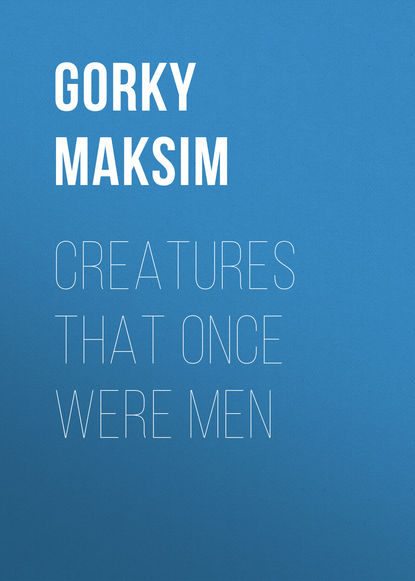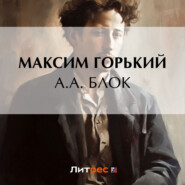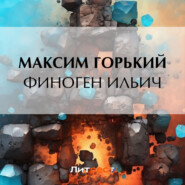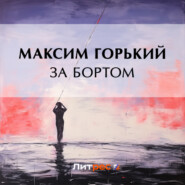По всем вопросам обращайтесь на: info@litportal.ru
(©) 2003-2025.
✖
Creatures That Once Were Men
Настройки чтения
Размер шрифта
Высота строк
Поля
"May you all go to the Devil! Dead? What of that? Why should I care? Why should I speak about it? It will be time enough when I come to die myself… I am not worse than other people."
"That is true," said the Captain, loudly, and fell to the ground.
"The time will come when we shall all die like others… Ha! ha! How shall we live? … That is nothing… But we shall die like every one else, and this is the whole end of life, take my word for it. A man lives only to die, and he dies … and if this be so what does it matter how or where he died or how he lived? Am I right, Martyanoff? Let us therefore drink … whilst we still have life!"
The rain began to fall. Thick, close darkness covered the figures that lay scattered over the ground, half drunk, half asleep. The light in the windows of the dosshouse flickered, paled, and suddenly disappeared. Probably the wind blew it out or else the oil was exhausted. The drops of rain sounded strangely on the iron roof of the dosshouse. Above the mountain where the town lay the ringing of bells was heard, rung by the watchers in the churches. The brazen sound coming from the belfry rang out into the dark and died away, and before its last indistinct note was drowned another stroke was heard and the monotonous silence was again broken by the melancholy clang of bells.
The next morning Tyapa was the first to wake up. Lying on his back he looked up into the sky. Only in such a position did his deformed neck permit him to see the clouds above his head.
This morning the sky was of a uniform grey. Up there hung the damp, cold mist of dawn, almost extinguishing the sun, hiding the unknown vastness behind and pouring despondency over the earth. Tyapa crossed himself, and leaning on his elbow, looked round to see whether there was any vodki left. The bottle was there, but it was empty. Crossing over his companions he looked into the glasses from which they had drunk, found one of them almost full, emptied it, wiped his lips with his sleeve, and began to shake the Captain.
The Captain raised his head and looked at him with sad eyes.
"We must inform the police… Get up!"
"Of what?" asked the Captain, sleepily and angrily.
"What, is he not dead? …"
"Who?"
"The learned one…"
"Philip? Ye-es!"
"Did you forget? … Alas!" said Tyapa, hoarsely. The Captain rose to his feet, yawned and stretched himself till all his bones cracked.
"Well, then! Go and give information…"
"I will not go … I do not like them," said the Captain, morosely.
"Well, then, wake up the Deacon… I shall go, at any rate."
"All right! … Deacon, get up!"
The Captain entered the dosshouse, and stood at the teacher's feet. The dead man lay at full length, his left hand on his breast, the right hand held as if ready to strike some one.
The Captain thought that if the teacher got up now, he would be as tall as Paltara Taras. Then he sat by the side of the dead man and sighed, as he remembered that they had lived together for the last three years. Tyapa entered holding his head like a goat which is ready to butt.
He sat down quietly and seriously on the opposite side of the teacher's body, looked into the dark, silent face, and began to sob.
"So … he is dead … I too shall die soon…"
"It is quite time for that!" said the Captain, gloomily.
"It is," Tyapa agreed. "You ought to die too… Anything is better than this…"
"But perhaps death might be worse? How do you know?"
"It could not be worse. When you die you have only God to deal with … but here you have to deal with men … and men – what are they?"
"Enough! … Be quiet!" interrupted Kuvalda, angrily.
And in the dawn, which filled the dosshouse, a solemn stillness reigned over all. Long and silently they sat at the feet of their dead companion, seldom looking at him, and both plunged in thought. Then Tyapa asked:
"Will you bury him?"
"I? No, let the police bury him!"
"You took money from Vaviloff for this petition … and I will give you some if you have not enough." …
"Though I have his money … still I shall not bury him."
"That is not right. You are robbing the dead. I will tell them all that you want to keep his money…" Tyapa threatened him.
"You are a fool, you old devil!" said Kuvalda, contemptuously.
"I am not a fool … but it is not right nor friendly."
"Enough! Be off!"
"How much money is there?"
"Twenty-five roubles, …" said Kuvalda, absently.
"So! … You might gain a five-rouble note…"
"You old scoundrel! …" And looking into Tyapa's face the Captain swore.
"Well, what? Give …"
"Go to the Devil! … I am going to spend this money in erecting a monument to him."
"What does he want that for?"
"I will buy a stone and an anchor. I shall place the stone on the grass, and attach the anchor to it with a very heavy chain."
"Why? You are playing tricks …"
"Well … It is no business of yours."
"Look out! I shall tell …" again threatened Tyapa.
Aristid Fomich looked at him sullenly and said nothing. Again they sat there in that silence which, in the presence of the dead, is so full of mystery.
"Listen … They are coming!" Tyapa got up and went out of the dosshouse.
Then there appeared at the door the Doctor, the Police Inspector of the district, and the examining Magistrate or Coroner. All three came in turn, looked at the dead teacher, and then went out, throwing suspicious glances at Kuvalda. He sat there, without taking any notice of them, until the Police Inspector asked him:
"That is true," said the Captain, loudly, and fell to the ground.
"The time will come when we shall all die like others… Ha! ha! How shall we live? … That is nothing… But we shall die like every one else, and this is the whole end of life, take my word for it. A man lives only to die, and he dies … and if this be so what does it matter how or where he died or how he lived? Am I right, Martyanoff? Let us therefore drink … whilst we still have life!"
The rain began to fall. Thick, close darkness covered the figures that lay scattered over the ground, half drunk, half asleep. The light in the windows of the dosshouse flickered, paled, and suddenly disappeared. Probably the wind blew it out or else the oil was exhausted. The drops of rain sounded strangely on the iron roof of the dosshouse. Above the mountain where the town lay the ringing of bells was heard, rung by the watchers in the churches. The brazen sound coming from the belfry rang out into the dark and died away, and before its last indistinct note was drowned another stroke was heard and the monotonous silence was again broken by the melancholy clang of bells.
The next morning Tyapa was the first to wake up. Lying on his back he looked up into the sky. Only in such a position did his deformed neck permit him to see the clouds above his head.
This morning the sky was of a uniform grey. Up there hung the damp, cold mist of dawn, almost extinguishing the sun, hiding the unknown vastness behind and pouring despondency over the earth. Tyapa crossed himself, and leaning on his elbow, looked round to see whether there was any vodki left. The bottle was there, but it was empty. Crossing over his companions he looked into the glasses from which they had drunk, found one of them almost full, emptied it, wiped his lips with his sleeve, and began to shake the Captain.
The Captain raised his head and looked at him with sad eyes.
"We must inform the police… Get up!"
"Of what?" asked the Captain, sleepily and angrily.
"What, is he not dead? …"
"Who?"
"The learned one…"
"Philip? Ye-es!"
"Did you forget? … Alas!" said Tyapa, hoarsely. The Captain rose to his feet, yawned and stretched himself till all his bones cracked.
"Well, then! Go and give information…"
"I will not go … I do not like them," said the Captain, morosely.
"Well, then, wake up the Deacon… I shall go, at any rate."
"All right! … Deacon, get up!"
The Captain entered the dosshouse, and stood at the teacher's feet. The dead man lay at full length, his left hand on his breast, the right hand held as if ready to strike some one.
The Captain thought that if the teacher got up now, he would be as tall as Paltara Taras. Then he sat by the side of the dead man and sighed, as he remembered that they had lived together for the last three years. Tyapa entered holding his head like a goat which is ready to butt.
He sat down quietly and seriously on the opposite side of the teacher's body, looked into the dark, silent face, and began to sob.
"So … he is dead … I too shall die soon…"
"It is quite time for that!" said the Captain, gloomily.
"It is," Tyapa agreed. "You ought to die too… Anything is better than this…"
"But perhaps death might be worse? How do you know?"
"It could not be worse. When you die you have only God to deal with … but here you have to deal with men … and men – what are they?"
"Enough! … Be quiet!" interrupted Kuvalda, angrily.
And in the dawn, which filled the dosshouse, a solemn stillness reigned over all. Long and silently they sat at the feet of their dead companion, seldom looking at him, and both plunged in thought. Then Tyapa asked:
"Will you bury him?"
"I? No, let the police bury him!"
"You took money from Vaviloff for this petition … and I will give you some if you have not enough." …
"Though I have his money … still I shall not bury him."
"That is not right. You are robbing the dead. I will tell them all that you want to keep his money…" Tyapa threatened him.
"You are a fool, you old devil!" said Kuvalda, contemptuously.
"I am not a fool … but it is not right nor friendly."
"Enough! Be off!"
"How much money is there?"
"Twenty-five roubles, …" said Kuvalda, absently.
"So! … You might gain a five-rouble note…"
"You old scoundrel! …" And looking into Tyapa's face the Captain swore.
"Well, what? Give …"
"Go to the Devil! … I am going to spend this money in erecting a monument to him."
"What does he want that for?"
"I will buy a stone and an anchor. I shall place the stone on the grass, and attach the anchor to it with a very heavy chain."
"Why? You are playing tricks …"
"Well … It is no business of yours."
"Look out! I shall tell …" again threatened Tyapa.
Aristid Fomich looked at him sullenly and said nothing. Again they sat there in that silence which, in the presence of the dead, is so full of mystery.
"Listen … They are coming!" Tyapa got up and went out of the dosshouse.
Then there appeared at the door the Doctor, the Police Inspector of the district, and the examining Magistrate or Coroner. All three came in turn, looked at the dead teacher, and then went out, throwing suspicious glances at Kuvalda. He sat there, without taking any notice of them, until the Police Inspector asked him:

















